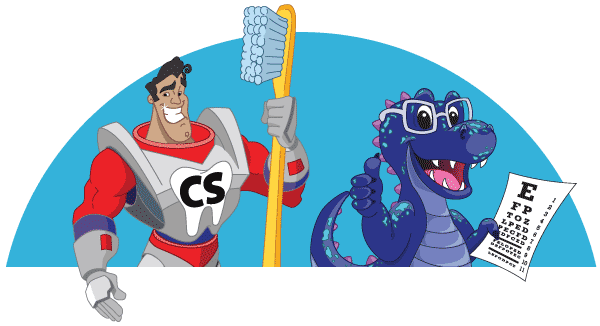Dental
6 Signs Your Child May Need to Go to the Dentist

Your child’s dental health is important to your child’s overall health and well-being. Regular dental care is an important aspect to ensure good dental health. With that said, sometimes in between check-ups, it may be necessary for you to present to the dental office for an examination of your child’s teeth. Here are 6 indications that your child may need to see the dentist in between regular check-up appointments.
Signs and Symptoms Your Child Needs Dental Care Now
Parents should regularly check inside their children’s mouths. We encourage parents to actively participate in helping your child to brush and floss. Young children do not have the dexterity yet to adequately brush and floss on their own. For children under 7 years of age, we encourage parents to actively brush and floss, generally children over 7 years old, the parent can switch from actively brushing/flossing to supervising your child’s brushing and flossing his/her own teeth.
Toothaches/Pain
If your child has mouth or tooth pain, please call to schedule a dentist appointment. Pain is your body’s way of communicating something may be wrong, and the sooner a dentist can examine your child, the sooner the condition can be assessed and addressed if needed.
If you have any dental concerns between check-up appointments about your children’s teeth, call to have your child examined as soon as possible. There’s no need for your child to be in any pain or discomfort due to an issue with their teeth. We are here to help!
White Spots/Brown Spots Noticed on Teeth
If you notice what appears to be chalky/white spots on your child’s teeth, this may be a sign that a dental caries (cavity) may be beginning to develop. If you see a tooth that is turning brown or black or has broken fragments, call to have your child seen by the dentist as soon as possible. Tooth decay can progress quickly, so if you see any discoloration, please schedule an appointment as soon as possible so that the dentist can examine and assess your child’s teeth.
Irritated Gums
If your child complains of their gums hurting after they brush or their gums are red, swollen or even bleeding, please have your child seen by the dentist for an examination. Irritated gums may indicate gingivitis, or other health care concerns. Have your child’s dentist examine and assess!
Sensitive to Hot or Cold
If ice cream or hot chocolate (or other hot and cold foods) cause your child to have dental pain, that may be a warning sign that your child has dental caries and may be getting a cavity. Have your child’s dentist examine and assess!
Loose/Wiggly Teeth
As children grown, baby teeth start to fall out (exfoliate) and permanent (adult) teeth begin to come in (erupt). So, losing baby teeth is part of a child’s growing up and this process can occur from approximately 6 years old to 12 years old. However, if permanent (adult) tooth were to become wiggly or loose or traumatized (hit, or bumped or otherwise just becomes mobile or loose), then please make an appointment with your child’s dentist to examine and assess as soon as possible.
Problems/Delays with Adult Teeth Breaking Through Gums
Some children don’t lose their baby teeth even after the adult tooth breaks through the gums (erupts). If the adult tooth was not able to force out the baby tooth, a dentist might need to assess and sometime intervene. At times, the permanent tooth or teeth may come in extremely crooked or with other concerns. If that’s the case, the dentist will examine and assess and may recommend your child see an orthodontist in the future.
About Regular Dental Care
We encourage you to have your child be seen by a dentist every six months for a dental check-up and dental cleaning. Regular dental care is important to facilitate early detection and early intervention of dental caries or gum disease and other oral health related concerns.
Your Child’s First Visit
Your child should visit the dentist right after their first tooth appears or by their first birthday. During your child’s visit to the dentist, the dentist will examine the oral structures in your child’s mouth and discuss with you best practices for diet and oral hygiene and anticipatory guidance as your child develops and grows. Your dentist will discuss with you the need for radiographs if any are recommended for your child’s teeth or other oral structures. Another purpose for this initial visit is to help your child become acquainted with and comfortable with visiting the dentist to pave the way for a lifetime of good dental care!
Regular Checkups Every Six Months
After your child’s initial dental examine, we recommend that you schedule your child’s dental checkups every six months. Having your child’s teeth and mouth examined at least every six months is a good way to help ensure early diagnosis of gum disease or dental caries, or any other oral health condition. Excellent care, and proper diet and oral hygiene habits at a young age can have lasting health benefits into adulthood! Please let us know if you have any other questions. Our dentists and dental teams look forward to serving your child’s oral health care needs.

